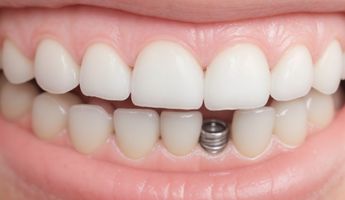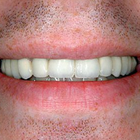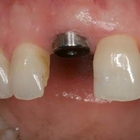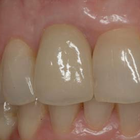Dental Implant in Malaysia
Search and Compare the Best Clinics and Doctors at the Lowest Prices for Dental Implant in Malaysia

Find the best clinics for Dental Implant in Malaysia
With Medijump you can browse 16 facilities offering Dental Implant procedures in Malaysia. The cheapest price available is $1,120 in Kuala Lumpur. And for the cheapest price globally, prices start from $1 in Vietnam.
Dental Implant in Kuala Lumpur
Price: $ 1,120
Vietnam offers the best prices Worldwide
Price: $ 1
From 91 verified reviews
Zainuddin D, 07 September 2020
Great private sepcialist hospital
From 132 verified reviews
Derf B. Sibal, 19 September 2020
Staffs are very kind and responsible, great quality service! I’ve been getting a five star service in five years now! Keep up!
From 137 verified reviews
katz Ayim, 05 May 2020
If you want a great service for your teeth this a great place to be., friendly staff and a very good dentist! I recommend this place highly., I’ve done my teeth here and it was still in a great condition., thank you doc lee
From 36 verified reviews
Kasvin Kaur, 04 September 2020
I got my treatment done by Dr Ahmad. He was very professional and attentive to my problems. The staff were also very friendly and welcoming. Overall a very good experience.
From 34 verified reviews
Pauziyah Othman, 05 August 2020
Make a dentist here, cheap
From 136 verified reviews
ying ying low, 22 September 2020
It was amazing. Extraction of a decayed tooth and wisdom tooth took about 3 min and subsequent implant for less than 10min... the whole process started from 6.56pm and ended at 7.15pm! This was really super fast and no pain.. a dentist fobia person like me is truly fascinated by the excellent professional dental surgery procedures. Dr How, thank you for providing me an effective speedy solution and making this a great experience.You are the best!!!
From 27 verified reviews
Alson Teh, 04 September 2020
Dr is highly professional and friendly, glad that he could solve my tooth problem that has been plaguing me for a very long time. Recommended to those who seek quality dental service with reasonable price.
From 19 verified reviews
Jennie kim, 22 May 2020
The doctor was very friendly and kind for foreigner patient like me.
From 42 verified reviews
Hardeep Singh, 19 July 2020
Excellent staff and facilities
From 6 verified reviews
ShadowFighterXxX Glaive Master, 31 May 2019
Very Happy with the results. Dr. Norrazian
From 7 verified reviews
Ernest Khaw, 29 May 2020
Had what i thought was a toothache and made an immediate appt. Dr Resha treated me. Super kind, patient and thorough dentist. Went above and beyond on how to care for my teeth at home as well as shared exercises for my jaw via whatsapp. Great service, good doctor.
DrocheHealthcare Group, located in Kota Kinabalu, Sabah, Malaysia offers patients Dental Implant procedures among its total of 36 available procedures, across 2 different specialties. Currently, there's no pricing information for Dental Implant procedures at DrocheHealthcare Group, as all prices are available on request only, whilst the national average price is approximately $1,392. All procedures and treatments are undertaken by just a small team of specialists, with 3 in total at the Hospital, and they have multiple recognized accreditations, including: FICCDE - International College of Continuing Dental Education FellowshipMBChB - Bachelor of Medicine, Bachelor of SurgeryFRACGP - Fellowship of the Royal Australian College of General PractitionersAGD - Academy of General DentistryMOIA - Malaysian Oral Implant Association
Dentalpro Group, located in KL City, Kuala Lumpur, Malaysia offers patients Dental Implant procedures among its total of 56 available procedures, across 3 different specialties. The cost of a Dental Implant procedure ranges from $1,262 to $1,378, whilst the national average price is approximately $1,392. There are many specialists available at the Dental, with 10 in total, and they are not accredited by any recognized accreditations institutes
All Smile Dental Specialist, located in Taman Tun Dr Ismail, Kuala Lumpur, Malaysia offers patients Dental Implant procedures among its total of 18 available procedures, across 1 different specialties. The cost of a Dental Implant procedure ranges from $1,271 to $2,118, whilst the national average price is approximately $1,392. All procedures and treatments are undertaken by just a small team of specialists, with 2 in total at the Dental, and they are not accredited by any recognized accreditations institutes
Zenith Dentistry, located in Kepong, Kuala Lumpur, Malaysia offers patients Dental Implant procedures among its total of 36 available procedures, across 2 different specialties. Currently, there's no pricing information for Dental Implant procedures at Zenith Dentistry, as all prices are available on request only, whilst the national average price is approximately $1,392. All procedures and treatments are undertaken by just a small team of specialists, with 2 in total at the Dental, and they have multiple recognized accreditations, including: MDA - Malaysian Dental AssociationMPDPA - Malaysian Private Dental Practitioners AssociationMDC - Malaysian Dental Council
Signature Dental Clinic, located in Petaling Jaya, Selangor, Malaysia offers patients Dental Implant procedures among its total of 39 available procedures, across 3 different specialties. Currently, there's no pricing information for Dental Implant procedures at Signature Dental Clinic, as all prices are available on request only, whilst the national average price is approximately $1,392. There are many specialists available at the Dental, with 8 in total, and they have multiple recognized accreditations, including: MPS - Medical Protection SocietyFICCDE - International College of Continuing Dental Education FellowshipMPS - Medical Protection SocietyMHTC - Malaysia Healthcare Travel Council MSQH - The Malaysian Society for Quality in HealthMDA - Malaysian Dental AssociationMPDPA - Malaysian Private Dental Practitioners AssociationMAAD - Malaysian Academy of Aesthetic DentistryMDC - Malaysian Dental CouncilMPS - Medical Protection Society
- Home
- Malaysia
Compare Before & After Photos of _procedure_photos.phpDental Implant


Front view


Front view


Front view


Front view


Front view
WHY US?
At Medijump, we're making medical easy. You can search, compare, discuss, and book your medical all in one place. We open the door to the best medical providers worldwide, saving you time and energy along the way, and it's all for FREE, no hidden fees, and no price markups guaranteed. So what are you waiting for?

Free

Best Price

Widest Selection

Risk-Free
What you need to know about Dental Implant in Malaysia

A dental implant is a medical device that provide support to artificial teeth. It's surgically placed into the jaw to act as a replacement for the root of a missing or damaged tooth, which in turn serves to hold a replacement tooth or bridge. It functions and looks much like a real tooth, restoring your ability to chew and improves your overall appearance. Dental implant surgery is considered as a better alternative to dentures or bridgework that does not fit well. It also offers a great option for people when they do not have enough natural teeth roots left to build denture or bridgework replacements.
Since dental implants eventually fuse with your jawbone over the span of several months, it won’t make noise, slip, or cause bone damage the way dentures or bridgework might. Dental implants also enable natural speech, look and feel like your own teeth, make eating easier, and improves your appearance. However, the surgery may involve several stages, and, in some cases, it may require two separate visits to the clinic to complete. Ensure to look for a specialist in a reputable clinic for the best results.
What is the cost of Dental Implant in Malaysia?
Price differences abound in Malaysia for Dental Implant based on the clinic, the proficiency of the surgeon, and the individual requirements of the patients. It's essential to realize that dental insurance usually doesn't cover the entire bill for this treatment, though it might cover a part. Several dental clinics provide finance schemes or payment alternatives to assist in easing the financial burden. For more precise cost estimates, reach out to your dental service provider or a nearby clinic.
What does a Dental Implant Procedure Involve?
Dental implant surgery generally requires several stages. Each stage may be performed under general or local anesthetic. The first stage is removing the damaged tooth. Then, if your jawbone is too soft or not thick enough, your dentist may perform bone grafting to create a more solid base for the implant. The bone graft may be natural (taken from another part of your body) or synthetic (a bone-substitute material). If you only need minor bone grafting, the implant surgery can be performed on the same day. However, if you need a significant amount of bone graft, the implant surgery may have to be postponed until the transplanted bone grows enough new bone to support the dental implant.
The next stage after the damaged tooth removal and bone graft (if you need one) is placing the dental implant. To do this, your dentist makes an incision to expose the bone and puts the metal implant post deep into the bone. At this stage, you will still have a gap where your tooth is missing. Your dentist will place a temporary denture for appearance. Once the metal implant post is placed, osseointegration begins. This is a process where the jawbone grows into the surface of the implant and can take several months to complete. After osseointegration is complete, your dentist will place the abutment, which is a small connector post that will hold your new tooth. The final stage, after the abutment is placed, is placing the crown, which is the tooth-looking part. You can choose between a removable crown and a fixed crown.
How Long Should I Stay in Malaysia for a Dental Implant Procedure?
The length of your stay in Malaysia for a Dental Implant depends on numerous considerations like the intricacies of the procedure, the quantity of implants required, and your personal recovery process. Each stage of dental implant surgery is done in separate appointments. After each appointment, you should be able to leave the hospital or clinic right away. However, you should stay in Malaysia for at least 2 weeks for completion of the work, the initial recovery time, and follow-up checkups.
What's the Recovery Time for Dental Implant Procedures?
The recuperation duration following a Dental Implant or dental implant operation can widely vary and is shaped by multiple aspects. Initial healing of the tissue might require only a handful of days, but complete osseointegration (the fusion of the implant with the jawbone) generally spans several months. This window could be extended for patients requiring auxiliary procedures such as bone grafts, or those with prevailing health issues that may impede the healing process.
Post-procedure, it's not unusual to experience a degree of discomfort, which could manifest as minor pain, swelling of your gums and face, skin and gum bruising, and slight bleeding. Such symptoms are a standard phase of the recovery process and should alleviate within a fortnight. In this interim, it's advisable to stick to a soft diet to not overload the implant site with undue pressure. Any strenuous physical exertion should be put off to circumvent potential complications.
Maintaining excellent oral hygiene is paramount to facilitate healing and stave off infection. Regular brushing and flossing, being particularly gentle around the surgical area, coupled with rinsing your oral cavity with warm saline water, can contribute to keeping the region hygienic.
What sort of Aftercare is Required for Dental Implant Procedures?
After each stage of surgery, you may have to eat soft foods. Since you may experience swelling, bruising, pain, and minor bleeding, your dentist will prescribe pain medications or antibiotics to help ease your discomfort. During your recovery period, you need to avoid smoking as it can contribute to implant failure and complications.
No special care is required for dental implants. Nonetheless, you need to practice good oral hygiene in order to maintain the implant and your remaining natural teeth. Make sure to brush your teeth twice a day, floss daily, and rinse your mouth with an antiseptic mouthwash. You also need to see your dentist regularly and avoid damaging habits, such as chewing hard items.
What's the Success Rate of Dental Implant Procedures?
The efficacy of Dental Implant, alternatively referred to as dental implants, in Malaysia, is typically impressive, boasting effectiveness percentages as high as 98% in some studies. This positions dental implants as one of the most reliable procedures within dental care's realm. Nevertheless, it's worth mentioning that the success rates might fluctuate, influenced by several factors.
The patient's overall health is a key determinant of the thriving outcome of a dental implant procedure. Individuals exhibiting optimal health usually witness higher success rates. Pre-existing health issues like diabetes, osteoporosis, and periodontal ailments can theoretically impact the efficacy of the implant.
Additional contributing factors to the success rate encompass the quality and abundance of the individual's bone structure. Patients boasting plentiful, healthy bone are ordinarily the perfect candidates for dental implants. However, those who have experienced bone loss might need to undergo a bone grafting procedure before the implant procedure. This step can provide a robust base for the implant and enhance the chances of a successful result.
Are there Alternatives to Dental Implant Procedures?
If you are not a candidate for dental implant surgery, or you simply do not want to undergo the procedure, you can opt for the alternatives. The alternatives include:
- Mini dental implants, which is a small type of dental implants. The structure is similar to regular dental implants, but are somewhat smaller in size. Unlike regular dental implants, dentists can often place mini implants only in one visit using local anesthesia. You may also be able to use your new teeth on the same day.
- A same-day implant is essentially similar to traditional dental implants. However, your dentist performs the whole process in just one day, skipping the process of wound healing and osseointegration.
- Implant-supported dentures or All-on-4 is an alternative if you need to fix a complete upper or lower set of teeth. During this procedure, four to six implants are placed into your jawbone as a base to attach and stabilize your denture.
What Should You Expect Before and After the Dental Implant Procedure?
Grasping what lies ahead before and post the Dental Implant can lessen potential worries and guarantee you are fully equipped for the upcoming journey. Prior to the procedure, your dental practitioner will conduct an all-inclusive dental assessment. This check-up may encompass dental X-rays and sophisticated 3D imaging to examine the status of your oral cavity.
The dental professional will also explore your medical history. If you're suffering from specific heart disorders or orthopedic implants, your dental practitioner might suggest antibiotics to avert infection. A personalized treatment blueprint, customized to your circumstances, will be constructed. This strategy takes into account factors like the amount of teeth you need substituted and the state of your jawbone. The procedure is typically carried out under local anesthesia to mitigate any discomfort.
Subsequent to the operation, experiencing slight unease is usual. You might witness inflammation of your face and gums, discoloration of your skin and gums, soreness at the insertion area, and insignificant bleeding. Your dental specialist will recommend medications to soothe these indicators. In case inflation, unease, or any other complications intensify in the days post-operation, it's crucial to reach out to your oral surgeon. Post-operation will require you to consume mushy foods as the operated site recovers. Moreover, you'll be guided to abstain from smoking, as it can hinder recovery and influence the triumph of the dental implant.
Following the positioning of the implant, the healing process, and fusion with the bone (osseointegration) transpire over an extended period. During this interval, maintaining robust oral cleanliness is vital. This involves frequent brushing, the use of dental floss, and cleansing with an antibacterial mouthwash. Periodic dental examinations are obligatory to track progress and confirm the well-being and effectiveness of the implant.
What are Potential Risks of Dental Implant?
Despite Dental Implant boasting remarkable effectiveness, it is, as any surgical operation, not without risks and potential difficulties. The chances of encountering these issues are often minute and irregularities are infrequent, yet it remains critical for patients to comprehend these possibilities before undertaking the procedure.
Complications and side effects may include:
- Implant failure
- Nerve injury
- Infection
- Sinus problems
- Damage to surrounding structures, such as other teeth or blood vessels
How long does a Dental Implant last?
The durability of a Dental Implant is heavily reliant on the individual's oral cleanliness and general wellbeing. Nonetheless, with appropriate upkeep and care, dental implants have the potential to stand the test of time. The titanium pillar inserted into the jawbone during surgery is crafted to be everlasting, while the dental cap fastened to the anchor may necessitate substitution every decade or decade and a half due to normal usage. Yet, with outstanding dental management and habitual screenings, the cap has the potential for lifelong endurance.
Whilst the information presented here has been accurately sourced and verified by a medical professional for its accuracy, it is still advised to consult with your doctor before pursuing a medical treatment at one of the listed medical providers
No Time?
Tell us what you're looking for and we'll reachout to the top clinics all at once
Enquire Now

Popular Procedures in Malaysia
Prices Start From $1

Prices Start From $1

Prices Start From $48

Prices Start From $1

Prices Start From $1

Prices Start From $11

Prices Start From $1

Prices Start From $45

Recommended Medical Centers in Malaysia for Dental Implant

- Interpreter services
- Translation service
- Religious facilities
- Medical records transfer
- Medical travel insurance
- Health insurance coordination
- TV in the room
- Safe in the room
- Phone in the room
- Private rooms for patients available

- Interpreter services
- Translation service
- Religious facilities
- Medical records transfer
- Medical travel insurance
- Health insurance coordination
- TV in the room
- Safe in the room
- Phone in the room
- Private rooms for patients available

- Interpreter services
- Translation service
- Religious facilities
- Medical records transfer
- Medical travel insurance
- Health insurance coordination
- TV in the room
- Safe in the room
- Phone in the room
- Private rooms for patients available

- Interpreter services
- Translation service
- Religious facilities
- Medical records transfer
- Medical travel insurance
- Health insurance coordination
- TV in the room
- Safe in the room
- Phone in the room
- Private rooms for patients available

- Interpreter services
- Translation service
- Religious facilities
- Medical records transfer
- Medical travel insurance
- Health insurance coordination
- TV in the room
- Safe in the room
- Phone in the room
- Private rooms for patients available

- Interpreter services
- Translation service
- Religious facilities
- Medical records transfer
- Medical travel insurance
- Health insurance coordination
- TV in the room
- Safe in the room
- Phone in the room
- Private rooms for patients available

- Interpreter services
- Translation service
- Religious facilities
- Medical records transfer
- Medical travel insurance
- Health insurance coordination
- TV in the room
- Safe in the room
- Phone in the room
- Private rooms for patients available

- Interpreter services
- Translation service
- Religious facilities
- Medical records transfer
- Medical travel insurance
- Health insurance coordination
- TV in the room
- Safe in the room
- Phone in the room
- Private rooms for patients available

- Interpreter services
- Translation service
- Religious facilities
- Medical records transfer
- Medical travel insurance
- Health insurance coordination
- TV in the room
- Safe in the room
- Phone in the room
- Private rooms for patients available

- Interpreter services
- Translation service
- Religious facilities
- Medical records transfer
- Medical travel insurance
- Health insurance coordination
- TV in the room
- Safe in the room
- Phone in the room
- Private rooms for patients available
Dental Implant in and around Malaysia
About Malaysia
Malaysia is a rich culturally-oriented tourist destination and has a beautiful blend of modernization with a relaxed lifestyle. The population of the country is 32 Million people and Malaysia’s economy ranks in the fourth position in terms of size in Southeast Asia, The electronics, automotive, and construction industries are the biggest industries in Malaysia. The capital is Kuala Lumpur and It is the country’s largest urban area and is the cultural, commercial, and transportation center.
Presently, Malaysia stands as a renowned destination for its exemplary healthcare facilities, offering these high-quality services at notably affordable costs when juxtaposed against other globally recognized medical nations. As per predictions from the Ministry of Finance, the influx of medical tourists is expected to surge beyond 2,000,000 million by 2020. This forecasted growth can be largely attributed to the exemption of taxes imposed on medical bills.
The cities that top the list of medical travel include Kuala Lumpur, Penang, Selangor, Sarawak, and Melaka. Statistics reveal that among the 1.2 million patients who have visited Malaysia for medical care in 2017, 600,000 alone were from Indonesia. The most-sought-after medical procedures are cosmetic surgery, Brazilian butt-lift, and dental surgery. Malaysia is a favorite destination among medical tourists globally for the following reasons.
- The Country possesses a plethora of world-class hospitals that have high-tech medical equipment.
- All treatment plans match very high ethical medical standards.
- The doctors and paramedical staff are well-qualified.
- All procedures will cost you 50% less than other well known medical countries.
- English is a major language and there is good two-way communication between the doctors/medical staff and the patients.
- After an elective surgical operation, many patients will stay on in Malaysia to holiday and recuperate.
Some of the top-rated five-star medical tourism hospitals within the country include Columbia Asia Extended Care Hospital situated in Selangor, Sunway Velocity Medical Centre located in Kuala Lumpur, and Sunway Medical Centre based in Selangor.
Popular parts of Malaysia
Undoubtedly, Malaysia's appeal is immediately evident. The variety of experiences it offers, from bustling cities to idyllic landscapes, entrances visitors. Malaysia's multiculturalism, expressed through unique customs and diverse cuisines, only enhances its charm. This draws tourists from all corners of the globe, leaving them yearning for more. Succinctly, the splendor and diversity of Malaysia make it hard to resist repeated visits.
- Kuala Lumpur has a mix of Malay, Indian, and Chinese influence which gives you a great selection of culinary delights to explore in this city. Interesting sights such as the Petronas Towers which is one of the tallest twin towers in the world. the Perdana Lake Gardens and the Menara KL Tower provide plenty of enjoyable distractions.
- Penang is an island on the west coast and the colonial city of Georgetown was made a UNESCO World Heritage Site and you can enjoy the museums, seaside fort, historic buildings. Penang is considered one of the best places in Southeast Asia to sample delicious street food of all types.
The must-visit cities in Malaysia renowned for their world-class appeal include Malacca, Langkawi, Kuching, Spaden, Johor Bahru, and Taiping.
Weather and Climate in Malaysia
Malaysia is a place that's warm all year round, as being in the tropical region. But since it's close to the ocean, the air can get pretty moist. Still, it's re-assuring to note that it doesn't get too hot, with temperatures usually staying between a pleasant 20°C and 30°C all throughout the year. Those who prefer cooler weather can visit the highlands in Malaysia, where it's generally chillier.
When planning a trip it's important to take into account the best times to visit different parts of the country. If you're eyeing the east coast, try to schedule your visit between March and September; this period is relatively drier than other months. On the other hand, the west coast is better visited from November to August. It's best to avoid the heavy rains which usually occur from September to October. With this information, you can plan to get the best out of your trip to Malaysia.
Getting around in Malaysia
The Country has a well-developed transport network and efficient rail links which makes all travel around the country easy.
It is advisable to book domestic transport well in advance during the main festivals, such as Chinese New Year, Hari Raya Pusa and Hari Raya Haji. Domestic flights and domestic express bus services are often sold out weeks before these festivals. All the major cities in Malaysia have an airport and most budget airlines operate into the country.
In the larger cities of Malaysia, you'll find that transportation is convenient with many kinds of vehicles to choose from. Specifically in Kuala Lumpur, the capital city, there's a broad range of public transportation options to get around. You can hop on buses for an affordable ride or opt for minibusses, locally known as "bas-mini" to navigate through narrower streets.
Furthermore, taxis are easily accessible in Kuala Lumpur, providing a convenient alternative when you prefer more comfort or need to reach a specific destination quickly. If you would like to experience something traditional and fun, pedicabs or "trishaws" as they are commonly known, are present in some parts of the city offering you a unique ride.
Additionally, Kuala Lumpur also boasts a well-connected train network, including rapid transit and commuter rail services, facilitating quick and efficient travel across the city. It's safe to say that in Kuala Lumpur, moving around is smooth and easy, thanks to these diverse means of transportation.
In Malaysian towns and cities, various modes of transport are used, including ferry services. In cities, the rail network is a good way to get around, especially the KL Monorail and transit trains.
Tourist Visas in Malaysia
The residents of the following countries holding a valid passport are the ones required to apply for a Malaysian tourist visa. China, India, Sri Lanka, Nepal, Myanmar, Bangladesh, Pakistan, Bhutan, Serbia, and Montenegro
All other nationalities will not need a visa to visit Malaysia. You will normally be given permission to stay for 3 months on arrival. Visas for longer stays or for non-tourist purposes must be obtained from the nearest Malaysian diplomatic mission before you travel.
The Malaysian authorities are running a vigorous campaign against illegal immigration. Don’t overstay your visa, or violate the terms of entry. Even if you overstay for just a few days, you can be fined, detained, deported, and blacklisted. Flight costs will be the responsibility of the individual.
Additional Information
- Local currency: Ringgit, denoted as RM, is the national Malaysian Currency. Printed in various colors, size, and physical appearance, the Bank Negara Malaysia and the National Bank of Malaysia control the issuing of currency. Malaysia follows the Chinese Model where it has cut itself away from comparing it to US dollars. The Malaysian currency is as such not traded internationally.
- Money and Payments: world-class restaurants and retail stores accept all forms of Credit cards. In case you are not holding the requisite quantity of local currency with you, you can exchange them at exchange bureaus. You can even take out cash from the ATMs.
- Local language: The official language is Malay and English is also widely spoken, the state has a cosmopolitan population, languages such as Arabic, Hindi, Tamil, are also spoken.
- Public holidays: The local population celebrates the Gregorian New year as well as the Chinese New Year. Since a large part of the population is Indian, Malaysia also celebrates some of the traditional Indian festivals such as Pongal, Diwali, and Tamil New Year.
Popular Searches
- Plastic Surgery in Thailand
- Dental Implants in Thailand
- Hair Transplant in Thailand
- Breast Augmentation Thailand
- Gastric Sleeve in Thailand
- Gender Reassignment Surgery in Thailand
- Laser Hair Removal in Bangkok
- Botox in Bangkok
- Dermatology in Bangkok
- Breast Augmentation in Bangkok
- Coolsculpting in Bangkok
- Veneers in Turkey
- Hair Transplant in Turkey
- Rhinoplasty in Turkey
- Stem Cell Therapy in Mexico
- Rhinoplasty in Mexico
- Liposuction in Mexico
- Coolsculpting in Tijuana
- Rhinoplasty in Korea
- Scar Removal in Korea
- Gastric Sleeve in Turkey
- Bone Marrow Transplant in India
- Invisalign in Malaysia
- Plastic Surgery in the Dominican Republic
- Tummy Tuck in the Dominican Republic
- Plastic and Cosmetic Surgery in Poland
- Rhinoplasty in Poland
- Hair Implant in Poland
- Dental Implants in Poland
- IVF in Turkey















